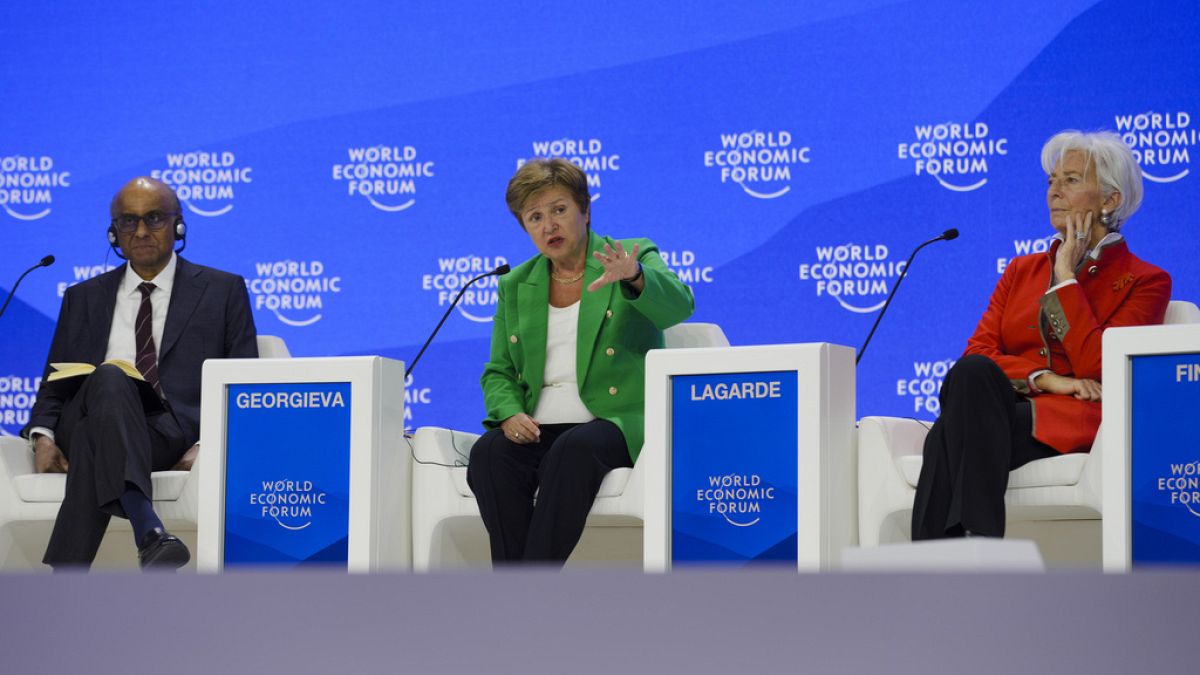The head of the IMF, Kristalina Georgieva, was speaking at a panel in Davos alongside ECB President, Christine Lagarde.
The eurozone should look to the United States if it wants to compete more effectively for global investment, said managing director of the International Monetary Fund (IMF) Kristalina Georgieva, on Friday.
“The United States has a culture of confidence. Europe has a culture of modesty,” Georgieva said. “My advice to my fellow Europeans is: more confidence.”
Georgieva was speaking at a panel during the World Economic Forum’s annual meeting in Davos, Switzerland, alongside leaders including the ECB’s Christine Lagarde.
“The world is changing very rapidly, and we are experiencing tremendous technological transformation,” continued Georgieva.
“Capital has to have long legs and go where it will make the biggest difference…And if countries want to move forward they have to be very aggressive in opening up opportunities for entrepreneurship.”
One area for improvement in the EU is progress on a unified market, said the IMF chief, which would make it easier to compete with the US.
Currently, fragmented pools of capital in the eurozone make it more difficult for investors to secure funding, compared to the US’ more streamlined setup.
Country-specific laws are a hindrance to cross-border investment, forcing companies to be more reliant on banks, rather than private investors, for loans.
The IMF’s most recent economic outlook projected global growth at 3.3% in 2025.
The group expects growth at 2.7% in the US and 1% in the eurozone.
Christine Lagarde, speaking alongside Georgieva, noted that the eurozone has a “huge amount of talent” and a “huge amount of savings”.
Striking an optimistic note, she reiterated the message that inflation is now falling as well as interest rates, improving business and consumer confidence in the region.
Trump’s presidency, she continued, could provide “big opportunities” for the eurozone.
The freezing of IRA subsidies in the US could notably attract capital and talent across the Atlantic.
Lagarde nonetheless added that she was “realistic” about the challenges facing the eurozone, notably progress on a banking union and a capital markets union.
She added that policymakers needed to do more to tackle red tape and excessive bureaucracy, hindering business activity.

